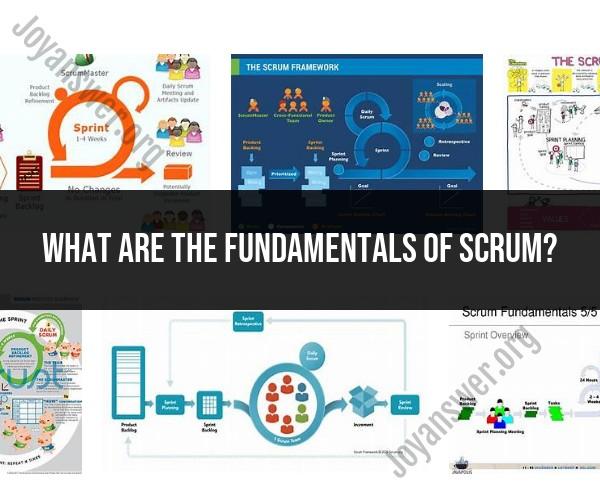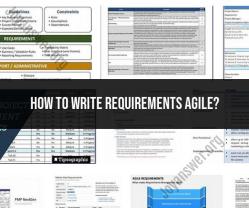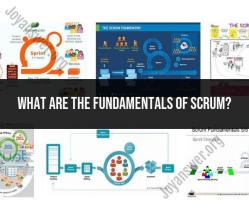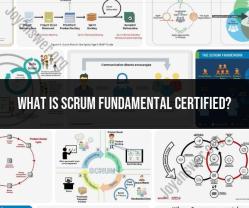What are the fundamentals of scrum?
The Scrum framework is built on several core fundamentals and principles that guide its approach to Agile project management and product development. Here are the key fundamentals of Scrum:
Roles:
- Product Owner: The Product Owner represents the interests of stakeholders, defines the product backlog, and ensures the team works on valuable features.
- Scrum Master: The Scrum Master serves as a servant-leader for the Scrum team, facilitating Scrum events, removing impediments, and coaching the team in Scrum principles.
- Development Team: The Development Team consists of cross-functional members who collaborate to deliver increments of a potentially shippable product at the end of each Sprint.
Artifacts:
- Product Backlog: The Product Backlog is a dynamic list of all features, enhancements, and fixes that need to be developed for the product. It's ordered by priority and can evolve over time.
- Sprint Backlog: The Sprint Backlog is a subset of the Product Backlog items selected for the current Sprint. It represents the work the Development Team commits to delivering within the Sprint.
- Increment: An Increment is the sum of all completed Product Backlog items during a Sprint. It should be in a potentially shippable state and meet the team's definition of "done."
Events:
- Sprint: A Sprint is a time-boxed iteration, typically lasting 2-4 weeks, during which a potentially shippable product increment is developed.
- Sprint Planning: This event is held at the beginning of each Sprint to determine what work will be done during the Sprint. It involves selecting items from the Product Backlog for the Sprint Backlog.
- Daily Scrum: A daily stand-up meeting where the Development Team discusses progress, plans for the day, and identifies any impediments.
- Sprint Review: At the end of each Sprint, the team demonstrates the completed Increment to stakeholders and obtains feedback.
- Sprint Retrospective: A meeting held after the Sprint Review to reflect on the Sprint, identify improvements, and plan actions to enhance future Sprints.
Time-boxing:
- Scrum events, such as Sprints, Sprint Planning, Daily Scrum, Sprint Review, and Sprint Retrospective, are time-boxed. This means they have fixed durations to promote regularity and minimize disruption.
Empirical Process Control:
- Scrum is based on the principles of transparency, inspection, and adaptation. The Scrum Team regularly inspects the product and its processes and adapts to maximize value and optimize performance.
Self-Organizing Teams:
- Scrum teams are self-organizing, meaning they have the autonomy to decide how to accomplish their work. The team selects work from the Sprint Backlog and collaborates to complete it.
Definition of "Done":
- Each Scrum team defines what "done" means for their work. The Definition of "Done" outlines the criteria that must be met for an Increment to be considered complete.
Inspect and Adapt:
- Scrum encourages regular inspection of the product and processes. Based on inspection results, the team adapts to improve quality, performance, and value delivery.
Commitment to Continuous Improvement:
- Scrum fosters a culture of continuous improvement, where teams regularly assess their practices and seek ways to enhance productivity, collaboration, and product quality.
Prioritization and Focus on Value:
- Scrum emphasizes the importance of prioritizing work based on value. The Product Owner ensures the most valuable features are delivered first.
These fundamentals form the core of the Scrum framework and serve as a solid foundation for Agile project management and product development. Scrum's iterative and incremental approach, combined with its focus on collaboration and customer feedback, helps teams deliver high-quality products that meet evolving requirements.




